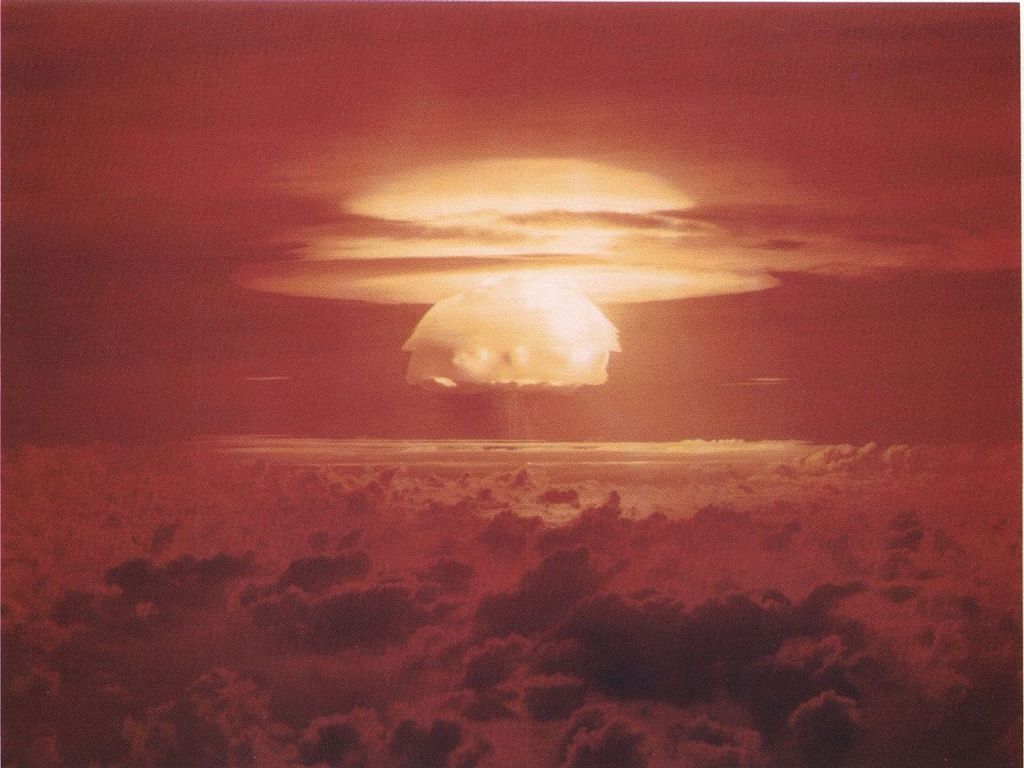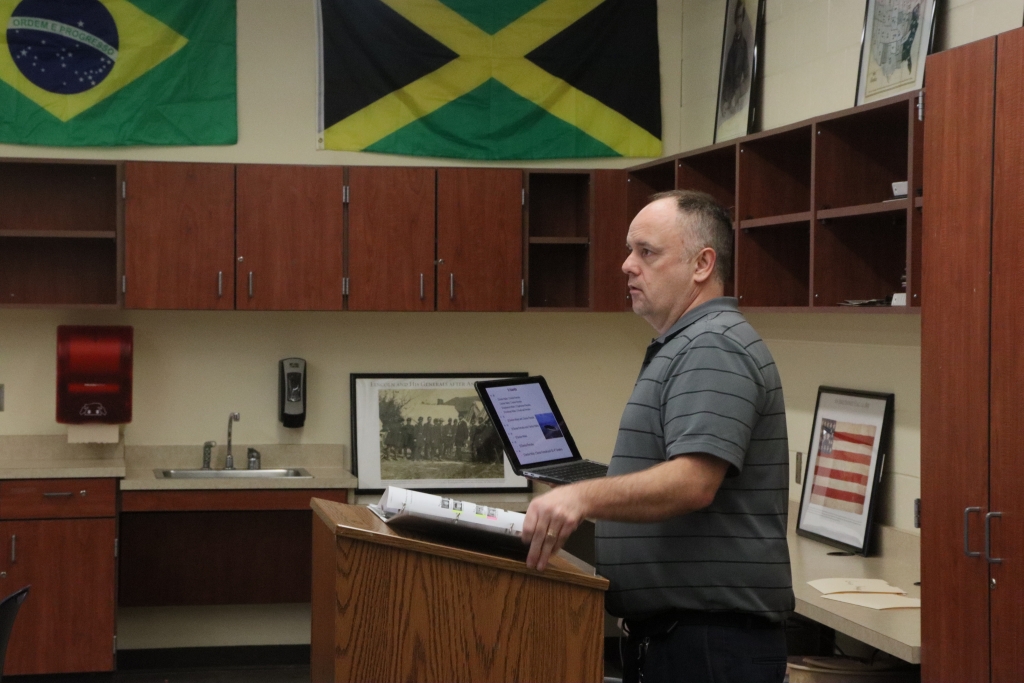Threat of Nuclear War

Story by Phillip Pyle ≫
There has been a shift in international relations in the last few months. The Middle East’s dicey relations and American mistrust with Russia have been put on the back burner, and out of the shadow arises North Korea. For decades, North Korean leader Kim Jong Un and his predecessors, including his father, have been threatening surrounding countries and suggesting that the United States should be cautious. However, recently, the stakes were raised exponentially.
In July the North Korean government tested a missile that ended in the Sea of Japan. According to BBC News, experts estimated that the weapon had the capability to reach Alaska. There was more turbulence in August, as North Korea threatened to fire five large missiles at Guam, a U.S. territory in the Pacific. The escalation of maliciousness between the two countries has skyrocketed in recent years, and there has been a major discussion among Americans concerning what our government should do. The United Nations has used sanctions as a punitive measure, on imports such as coal, seafood, and minerals. China recently joined many other countries in sanctioning North Korea.
The recent threats have prompted many different opinions, but many seem to be uncertain of a precision solution. Like a majority of Americans, Senior Leslie Douglas, is unsure of how to approach the threats.
“You can’t fight fire with fire in a situation like this,” Douglas said, “and we can’t just ignore North Korea’s threats. North Korea has hated us since the Korean War, and has refused to denuclearize for years. I think we have to better understand what Kim Jong Un wants before we can find a solution.”
Eudora History Teacher Jason Tharp believes that the threat is a serious matter that should not be ignored.
“You don’t have a choice but to take it seriously,” Tharp said, “Just ignoring it and hoping it gets better on its own doesn’t usually work. For example, look to Europe in the 1930’s. Appeasement always creates more problems than it solves.”
The situation seems very familiar. There are strikingly similar characteristics to the Cold War. The conflict, never turned war, between the Soviet Union and the United States may have been decades ago, but its effects are still lingering. Before the Cold War, there were boundaries to war. The introduction of nuclear weapons allowed for the fight to spread across continents. Similarly today, the theoretical war between the U.S. and North Korea would be fought with nuclear missiles flying over the Pacific, rather than physical soldiers fighting in each nation.
The possibility of a nuclear assault coming out of nowhere scares Senior Alex Brown.
“My fear is that nukes would be be shot at once, making it hard for the U.S. to stop them from hitting us,” Brown said.
The Cold War’s end was a bright time for the world, and many Americans can recall the days and years leading up to its demise. One of the most monumental events was the fall of the Berlin Wall on November 9, 1991. The destruction of the wall symbolized the reunification of West and East Germany and implied that the Cold War was coming to a close.
“When the Berlin Wall fell, I was shocked because I honestly believed it would never happen. Everyone, even here in the U.S., was very happy about it and there was a sense that it was a new beginning – there was a dark past that we were putting behind us,” said Spanish Teacher Kim Lancaster.
Today’s tension with North Korea does not have an end in sight, but it is important to stay hopeful in times of distress.
“Nuclear Warfare is something I pray never happens,” said Culinary Teacher Cathie Klein. “War usually begins with a mistake. I am praying that words are spoken carefully and thoughtfully.”







